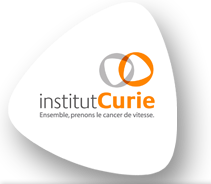Evaluation of Combined Chemotherapy and Genomic-Driven Targeted Therapy in Patient-Derived Xenografts Identifies New Therapeutic Approaches in Squamous Non-Small-Cell Lung Cancer Patients
Résumé
The combination of chemotherapy and targeted therapy has been validated in non-small-cell lung cancer (NSCLC) patients with EGFR mutations. We therefore investigated whether this type of combined approach could be more widely used by targeting other genetic alterations present in NSCLC. PDXs were generated from patients with NSCLC adenocarcinomas (ADCs) and squamous-cell carcinomas (SCCs). Targeted NGS analyses identified various molecular abnormalities in the MAPK and PI3K pathways and in the cell cycle process in our PDX panel. The antitumor efficacy of targeted therapies alone or in combination with chemotherapy was then tested in vivo. We observed that trametinib, BKM120, AZD2014 and palbociclib increased the efficacy of each chemotherapy in SCC PDXs, in contrast to a non-insignificant or slight improvement in ADCs. Furthermore, we observed high efficacy of trametinib in KRAS-, HRAS- and NRAS-mutated tumors (ADCs and SCCs), suggesting that the MEK inhibitor may be useful in a wider population of NSCLC patients, not just those with KRAS-mutated ADCs. Our results suggest that the detection of pathogenic variants by NGS should be performed in all NSCLCs, and particularly in SCCs, to offer patients a more effective combination of chemotherapy and targeted therapy.
Domaines
Sciences du Vivant [q-bio]
Fichier principal
 Evaluation of Combined Chemotherapy and Genomic-Driven.pdf (5.81 Mo)
Télécharger le fichier
Evaluation of Combined Chemotherapy and Genomic-Driven.pdf (5.81 Mo)
Télécharger le fichier
| Origine | Fichiers éditeurs autorisés sur une archive ouverte |
|---|---|
| licence |


